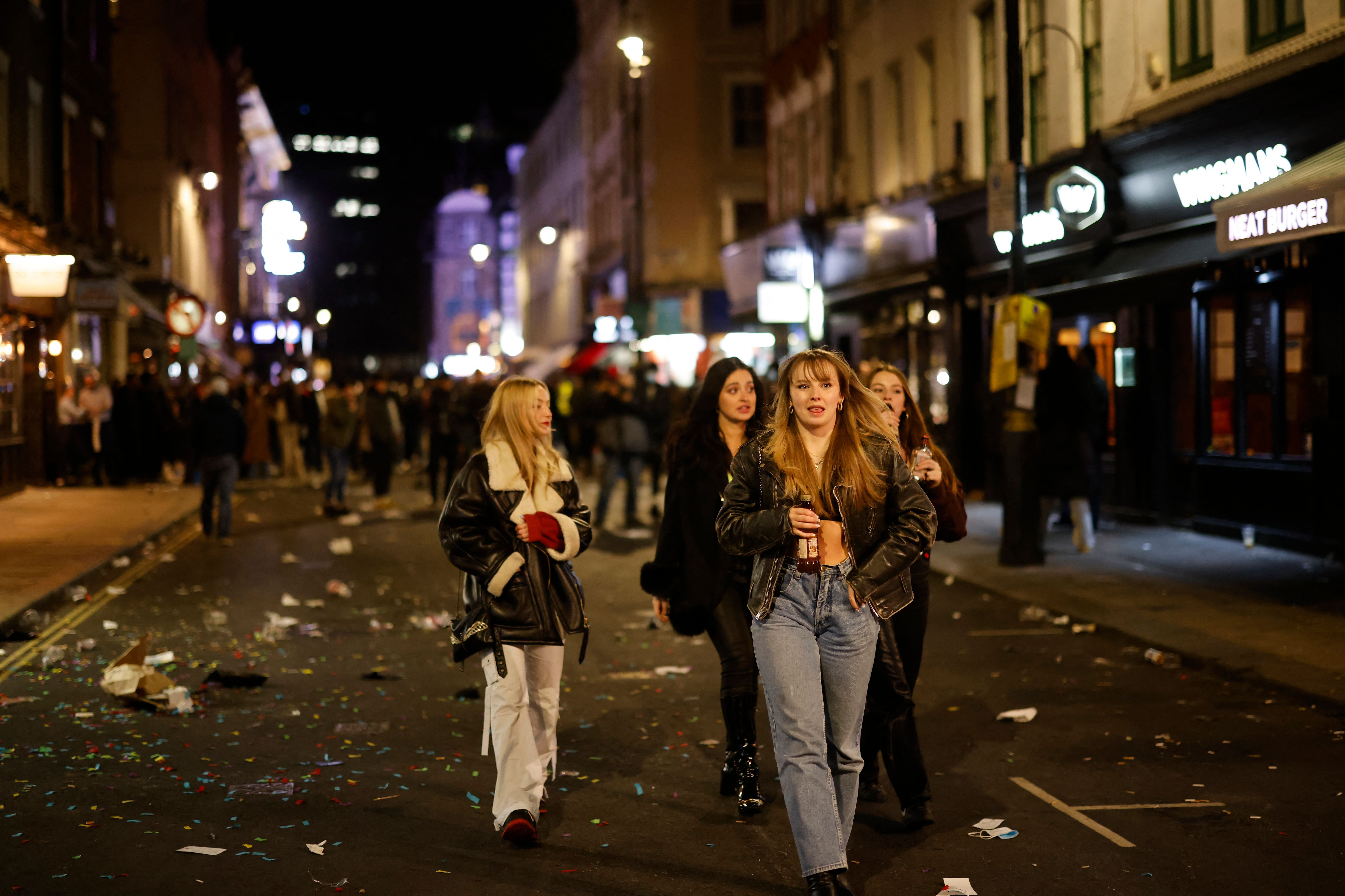One in nine women say they have had their drink spiked, poll finds
Exclusive: Four in 10 women said they do not think police officers would take them seriously if they reported it

Your support helps us to tell the story
From reproductive rights to climate change to Big Tech, The Independent is on the ground when the story is developing. Whether it's investigating the financials of Elon Musk's pro-Trump PAC or producing our latest documentary, 'The A Word', which shines a light on the American women fighting for reproductive rights, we know how important it is to parse out the facts from the messaging.
At such a critical moment in US history, we need reporters on the ground. Your donation allows us to keep sending journalists to speak to both sides of the story.
The Independent is trusted by Americans across the entire political spectrum. And unlike many other quality news outlets, we choose not to lock Americans out of our reporting and analysis with paywalls. We believe quality journalism should be available to everyone, paid for by those who can afford it.
Your support makes all the difference.One in nine women in the UK say they have had their drink spiked, a new poll has found.
Exclusive research by YouGov, carried out for The Independent, has revealed 11 per cent of women say they have been spiked in the past.
The survey, of 870 women and 823 men, found one in three women said they know someone who has been a victim of drink spiking.
Drink spiking has dominated headlines in recent weeks due to reports of women being injected with unknown substances in nightclubs and bars.
The poll also found four in 10 women said they do not think police officers would take them seriously if they reported their drink had been spiked.
Meanwhile, 38 per cent of men said they were sceptical they would be believed by police, while 43 per cent thought they would.
YouGov found that 6 per cent of men said they have been spiked, with one in five saying they know a victim of it.
It comes after the National Police Chiefs’ Council revealed around 200 drink spiking incidents have been reported across Britain in recent months.
A number of police forces are looking into reports of people being spiked with injections. Three men have been arrested in Nottinghamshire and Lincolnon suspicions of spiking drinks or utilising injections in the last month.
Helena Conibear, chief executive of the Alcohol Education Trust, told The Independent drink spiking can be used by sexual predators as well as by fraudsters to aid theft. One of the “scariest things” about having your drink spiked is experiencing a “complete memory blank”, she said.
Ms Conibear added: “We have talked to people who have come round in the bin area at clubs or freezing cold in the garden at private parties, or back in their own digs with no memory of how they got there.
“People who have had their drink spiked often experience nausea, sickness, being violently ill, and asthma attacks.”
Drink spiking has “long been a widespread ongoing problem”, Ms Conibear said, but as the public’s awareness of the issue grows, she hopes reporting and prosecutions will increase.
“If you compare that one in nine women has had a drink spiked with the number of prosecutions, it doesn’t correlate at all,” she added. “Why is the reporting and conviction rate so low?”
Figures obtained by The Observer via freedom of information requests appears to show Avon and Somerset police received reports of almost 500 drink spiking incidents without one conviction. But a representative for the force said the data could not be “necessarily accurate” due to the figures being collated by searching for key words.
Ms Conibear said drink spiking makes people feel fearful in bars and clubs, with them forced to closely watch their drinks and be “vigilant”.
She warned anyone who thinks drink spiking is not serious is wrong - adding that you can cause “huge psychological harm”, which can be as stark as psychosis, post-traumatic stress disorder, hospitalisation and anxiety.
She said that victims sometimes lose self-esteem and the confidence to even go out and socialise.
She added: “We need to pull together police, A&Es and venues to be more proactive and find out who these spikers are and prosecute them.”
Charities and campaigners recently told The Independent incidents are often “dismissed” by both the police and the NHS, which generally does not carry out blood and urine tests to check if victims have been spiked - with survivors routinely being left with nowhere to turn.
Rebecca Hitchen, of End Violence Against Women Coalition, said the data demonstrates “just how common” drink spiking is.
She added: “Particularly when we think the true figure is likely to be even higher, as often spiking can leave victims with little memory of what happened, and the most common drug used to spike drinks is alcohol itself.
“The fact that around half of women wouldn’t trust the venue or the police to take them seriously speaks volumes about the state of policing and wider attitudes towards sexual violence, and how much needs to change.
“Too often we see concerns about spiking translate into additional safety work put on women and girls to protect themselves. But what is actually needed is for there to be actions that focus specifically on the perpetrators who choose to violate the rights and wellbeing of women and girls.”
She also called for police officers and employees at nightclubs and bars not to “dismiss and minimise women’s experiences”.






Join our commenting forum
Join thought-provoking conversations, follow other Independent readers and see their replies
Comments